- Home
- Linda Mooney
The Battle Lord's Lady
The Battle Lord's Lady Read online
The Battle Lord’s Lady
(Book One of the “Battle Lord” Saga)
by
Linda Mooney
This is a work of fiction. Names, characters, places, and incidents are products of the author's imagination, or are used fictitiously, and are not to be construed as real. Any resemblance to actual events, locales, organizations, or persons, living, dead, or undead, is entirely coincidental.
The Battle Lord’s Lady
Copyright 2006 by Linda Mooney
ISBN 978-1-4507-1943-8
All rights reserved. No part of this book may be used or reproduced electronically or in print without written permission, except in the case of brief quotations embodied in reviews. Due to copyright laws you cannot trade, sell, or give any ebooks away.
For Jim
Chapter One
Home
It would snow before nightfall. Atty stared up at the naked trees, following the sight of her breath, like little white clouds as it dissipated in the cold gray afternoon. The woods dripped near-frozen drops of moisture. Even in late winter the surrounding trees were impenetrable. Huge mounds of undergrowth still clung to green remnants and tried to survive before being suffocated under a blanket of snow.
She continued on her way, tramping through the maze, stamping her feet harder than usual to try and get the feeling back in them. Her toes and fingers were numb. She’d lost feeling in them some time ago and hoped it was temporary. Toes she could live without, but the loss of fingers would eventually lead to her own slow death. Any deformity was a death sentence at this time of the world if it prevented one from finding food. Worse if the Cleaners discovered it. Any grave injury or illness also meant a short life span.
Her home was less than a mile away. Atty hoped she would get back before nightfall. If it began to snow before then, that wasn’t a problem. Getting caught after dark and having to face the coming storm—that was another nightmare. She hurried her pace. The rabbits she’d found in her traps bounced against her back, their bodies bound together by a makeshift cord.
Somewhere behind her she heard the howl of a wolfen. She remembered the first time she’d seen one. Pawpee had taken her hunting to show her how to use the new bow he’d made her for her birthday. They had gone a hundred yards into the forest when they saw it, an emaciated female hungrily gulping down a small rodent. Patches of fur were missing from her body, and distended teats showed that she was nursing young. The animal looked at the two bundled humans without fear before trotting off into the underbrush. It had been huge, almost as large as a horse.
“Are they all that big?” she’d asked in a soft voice. She had been almost afraid it would hear her and come back to devour them.
“Most,” Pawpee had whispered back. “That is why you must never be outside the walls once the sun goes down. The wolfen could get you...or worse.”
Atty began to breathe easier as familiar landmarks came into view. She stopped at a large evergreen whose trunk bore directional marks. Her lungs ached from the cold. Her nose was a lump on her face, totally without feeling. At least this time she had something to show for her misery. Like the poor wolfen she’d spotted years before, she averaged one good hunt for every five, but recently it had felt as if the odds were getting ready to change again. For the worse.
The woods were beginning to thin out, and in the spaces between the trees she could see the compound. As she emerged into the clearing the sentry caught sight of her and called out.
“Ho! Identify!”
“Atty Ferran!”
“Ho, Atty! Looks like your hunt was successful.”
“It was minimal. You should have seen the ones that got away.”
The sentry laughed, signaling to someone below to open the gate. There were four gates leading into the compound, one for each point of the compass, and all of them just big enough to allow a rider or a small cart. Atty approached from the south, the side facing the densest part of the woods.
Stepping over the threshold at this smaller entrance was like entering a different world. The interior of the compound buzzed with activity, a hive of people going to and from work, a marketplace of sellers and buyers, a small hub of people doing what they were best at, whether weaving or blacksmithing. Everyone seemed to be hurrying to get whatever they needed doing done quickly. Although the compound was safe at night,, and a lot of activity still filled the inner courtyard beneath lantern light, it was the approaching storm which had them scurrying like chickens.
“Atty! Ho! What have you there?” a tall, gaunt, and balding young man called out to her. He manned a stall of potatoes and business looked brisk. Potatoes were a staple of the community. Fortunately, they could also be grown year-round.
“I’ve had a successful hunt, Posso,” she grinned. “And, no, you cannot trade for any of them. I need them all.”
“Spoilsport,” Posso grinned back. He reached into his pants pocket with one of his three hands to make change for one of his customers, promptly getting back to business.
Atty hurried through the main area and down a narrow street. The compound was built with the living quarters clustered in the center. The area ringing the living quarters lay between them and the immense compound wall, much like an inverted doughnut. Most compounds had been built like that. In the event a raid took place, and the enemy managed to breach the outer wall, at least the inhabitants had a chance to meet them in face-to-face combat to try and prevent them from penetrating the inner core where families were hidden.
The streets weaving through the apartments were narrow but wide enough for two people to walk abreast. To a newcomer the gravel-lined walkways would be confusing. To Atty, who had trod these streets since birth, they were no more a mystery to her than the woods outside the compound gates.
“Mohmee! Look! I’ve had a successful hunt!” She bounded through the door and held up her catch with pride. Her joy was short-lived. “Mohmee? Keelor?”
As she had expected, the fireplace blazed cheerfully. The table held a pot of holly branches, a makeshift bouquet until the flowers bloomed again. The spinning wheel in the corner still held the partially finished pile of wool her mother had been carding. But there were no smells of anything cooking. Atty trudged into the inner rooms to check to see if anyone was back there but there was no sign of her mother and younger sister.
Assuming they might be at the market, Atty peeled off her outerwear, hanging the sodden clothing over the rod extending over the fireplace. She took several minutes bathing her reddened hands and feet in the warmth of the fire before going back into the bedroom she shared with her sister to fetch some fresh clothes. The heat felt glorious. The dry clothes felt even better. As feeling returned to her extremities, she took the rabbits into the kitchen area and began to de-feather them. If her mother hadn’t been able to start dinner, then it would be a nice surprise to have dinner waiting for them when they returned.
She pulled a small pot from under the counter and began to peel potatoes and onions to boil with the rabbits. At one point a length of braid slipped from the coil wrapped on top of her head and fell over her shoulder. Atty stared at the thick, indigo blue plait, then gave it a quick toss to her back. She would pin it back up when she was finished preparing the pot for the fire. Unlike so many others, whose abnormalities were obvious and sometimes distracting, it was her only badge to show she was one of them. Her unusual color allowed her to be part of the compound.
Once the pot was sitting atop the grate in the fireplace, Atty poked her head out the front door and checked the street again to see if her family was heading home. Night had completely fallen. Other than the pole lantern sputtering at the end of the lane, there wasn’t any light to brighten the pathway. Th
e broken moon was hidden behind the bank of snow clouds, now black ghosts riding low in the sky.
On either side of the apartment Atty could see lights dimming behind the drawn window shades in the adjacent apartments. Everyone was safely tucked in their prospective cubicles to await the morning sun. Atty knew her mother and little sister had no business being outside after dark unguarded even if they were in the heart of the compound. Besides, the cold was getting worse.
Sighing heavily, she closed the door, locked it, and went back to the stool by the fireplace. It was her seat, giving her an unobstructed view of the front door yet allowing her to remain warm and protected by the hearth. Her bow and quiver leaned against her, close at hand. Time passed slowly. The stew bubbled, mixing and softening the vegetables and meat until it was ready. Atty ate alone, never moving from her seat unless it was to check the street outside.
The town crier came around at lights out, accompanied by his ever-present protector with his crossbow and steel-tipped arrows. Atty doused the two candles she’d left lit, leaving just the slowly dying fire to throw faint golden shadows on the far wall from behind the screen she placed in front of it. Tears rolled silently down her face but no sound escaped her. The cold crept into the apartment even while the young woman leaned against the rock wall. Before long she was forced to put on more clothing to keep from shivering.
Late into the night, long after the fire had extinguished itself in the grate, Atty finally got to her feet and stiffly walked into the back bedroom, the room she’d shared with her younger sister for all of her twelve short years. There she lay across her mattress of pelts and fell asleep. The sleep of exhaustion. A sleep of deep mourning.
Outside the snow began to fall in fat lumps.
Chapter Two
Displaced
People disappearing was not unusual. Life had become dangerous almost three centuries ago when the Great Concussion had occurred. When the earth had passed through the meteor field, the huge chunks of space debris had punched into the lands and seas like a knife into a melon. Landscapes had collapsed and reformed. Land masses had shifted or been blown completely away into space. Seas divided, oceans dropped.
The moon suffered as well. The first collision with a meteor half its size split a crack into the orb. The second and third meteor wedged into the crack. The remaining shower pelted the powdery surface until the moon fragmented until it looked like someone had broken it open, then left it to hang with an immense chunk missing from its upper left quadrant.
According to history the shower had lasted no more than four hours from first impact to last. Four hours that had changed history forever. The earth managed to recover but it took human and animal kind longer. In some cases, never. In other ways, permanent changes had been wrought, some good, many not so good.
The moon, however, had lost its aura. Had lost its “man in the”. Had lost its cheese, as Pawpee once told her.
Atty was awakened by the pounding on the door. News had spread rapidly that Eenoi and Keelor Ferran had not returned to the compound the night before. For the young woman shivering on her bed it was the return of a nightmare she’d endured six years ago when she was fourteen. The night she and her mother had stayed up waiting for her father, a beloved husband and father who had never returned.
“You know you can’t stay,” Piron George uttered.
Atty bowed her head before the council of elders. His announcement was not unexpected. It was a rule. When the parents or guardians were gone, the remaining family had to be dispersed to other family members, or to those who would take in the survivors. Housing was at a premium and preciously guarded. Therefore, only families containing at least one adult member were allowed to live in them. When a family was whittled down to less, and there was no longer an adult member to hunt or provide adequate work to sustain the rest, other steps were taken. At least it guaranteed a home for everyone, whether they were related or not.
To her surprise, Memnon Kalich stepped forward. “Atty is an adult,” the young man pointed out. “And she’s one of our best hunters. Piron, you remember, don’t you? You owe her a debt when she brought food to your table when you had been ill with the tree fever, remember? She was one of those who helped keep your family fed until you could recover.”
Piron nodded. “I remember. And I do owe her. But she has no family and we can’t allow a single adult to hold an apartment. No, she has to move in with another family.”
“Isn’t there a family in need of a hunter?” asked another elder by the name of Twoson Pike. He was a corpulent man long past his prime, but his wisdom and guidance were valuable assets to the council. Many people in the compound felt his wealth of experience was due to the extra set of eyes in the back of his head.
Several hands rose in the crowd. However, only one person came forward to push his petition. “The council recognizes Fortune Kalich,” Twoson intoned.
The older man threw his son a glance before turning back to the panel. “Your Wisdoms, I would like to ask for Atty to become a part of my family. I know my son and I are already known hunters, and that by adding a third, well, others may not like it. But I assure you that is not the reason I ask. Atty’s father and I grew up together. We’d known each other since we were just sprouts. I know he would want me to watch after her for him... and Eenoi.”
Atty spoke up. “I know the council has never been happy with my induction into the caste of hunters. Therefore I’d like to offer that any extra food that I may capture I’ll distribute in the marketplace for those more in need.”
Session Bond, a third member of the panel, finally broke his silence. “Atty,” he asked, “are you content with the decision to become part of the Kalich family? As harsh as our laws may be, we’re not without compassion.”
The young woman nodded. “I accept Fortune Kalich’s offer. And I thank him.” Turning to face the man she’d known as her father’s friend, she said, “I promise I’ll try not to bring shame to them.”
“Then it’s done!” Twoson rapped his gavel on the table top signaling an end to the proceedings. Quickly done and acceptable to all parties—he liked it when it ended that way.
As the crowd dispersed, several people came by to give Atty their condolences. Atty hugged each in turn although she continued to feel numb by the suddenness of it all. Things were moving too swiftly, too decisively to give her any comfort.
That evening she walked about her old apartment and tried to figure out which items to keep and which to leave for the next tenant. There was so little that was personal enough to remind her of her parents and little sister. She packed all her clothes plus two of her mother’s sweaters that she’d always loved. Otherwise she left everything where it sat, including dirty utensils and bedding furs. In a world where lifetimes now were measured in years rather than decades or generations as they once had been, the luxury of owning property was almost nonexistent. A man owned what he could carry, which was usually the tools of his trade. A woman owned her personal skills, as her hands were usually full of children. The next abode would always contain a place to build a fire, a pot to cook in, and a bed to lie upon. One did not need to carry tables and chairs and other odd accouterments from apartment to apartment. Not only was it unthinkable, it was practically suicidal, especially when life hung in such a delicate balance.
Early the next morning Atty walked the narrow streets to her new home. Along the way she passed Sergei Peters, his wife Emma, and their two sons. All four carried parcels of clothing and food. Sergei wore his carpentry tools in a belt around his waist. Emma balanced a large basket of vegetables on her head. The whole family refused to make eye contact with the lone young woman, and Atty immediately knew who was taking up residence in the only place she’d ever known as “home”.
As they moved slowly in the direction from which she’d come, Atty hoisted her weapons into a more comfortable position across her shoulder. She continued to watch them until they turned the corner and were lost from view.
Only then did she continue on her way.
Fortune Kalich was waiting for her when she arrived. He opened the door before she had a chance to knock, throwing it open to greet her with his classic wide grin.
“Welcome to my family,” he greeted her symbolically.
“I accept your welcome,” she replied as per custom.
Having gotten tradition out of the way, Fortune led her into the apartment, gesturing for her to take a seat. Atty glanced around the main outer room and wondered where the rest of the family was.
At first glance their apartment was exactly like the one she’d left, right down to the after-smell of late breakfast. A second glance, however, gave away the little details that reminded her it wasn’t. Atty stared for several seconds at the pillow sitting against the small chair by the fireplace until she realized the elder Kalich had been talking to her. She shook her head to clear it, turned to him, and apologized.
“I’m sorry, Fortune. I didn’t hear what you were just saying...”
Fortune gave her a sympathetic eye. “Listen to me, prattling on like a lonely old woman. Here you’ve just lost the rest of your family, and you’re probably exhausted and hungry. What kind of substitute father am I? Sit down, Atty. Can I get you something to drink? We have milk.”
“Milk?” Atty’s eyes widened. It had been too long to remember when she’d last had a mug of milk.
Smiling softly, Fortune went into the kitchen and pulled a covered jar from the cool storage area beneath the floor. He poured a small mug of the goat’s milk and carried it back into the living area to hand it to her. He watched in silence as she quickly drained the mug and wiped the mustache from her upper lip with a shirt sleeve. “Would you like some more?”
Atty’s first impulse was to say yes, but her mother’s training caught up with her. “No, no, thanks,” she replied, shaking her head and handing him back the mug. She sniffed and glanced around the room again. Amazingly, she felt comfortable here. Maybe it was because she’d known Fortune and his family all her life. Maybe it was because Tory Kalich had often babysat her when she was little, and she was already familiar with the little pictures made from dried and pressed flowers the woman enjoyed making and sharing with her friends. Several such pictures were propped against the walls of the living area, and they reminded her of the two her own mother had hung in her bedroom.

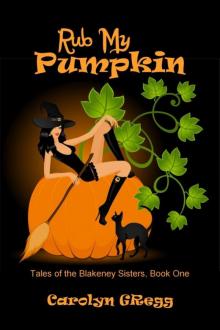 Rub My Pumpkin
Rub My Pumpkin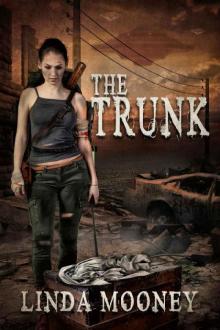 The Trunk
The Trunk Stone
Stone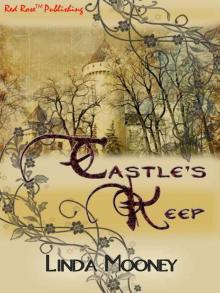 Castle's Keep
Castle's Keep Neverwylde (The Rim of the World Book 5)
Neverwylde (The Rim of the World Book 5) 36 Exposures
36 Exposures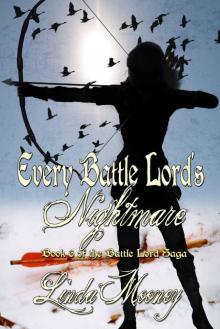 Every Battle Lord's Nightmare
Every Battle Lord's Nightmare Tickle My Candy Cane
Tickle My Candy Cane His by Right
His by Right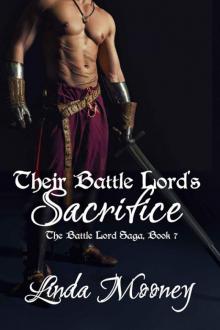 Their Battle Lord's Sacrifice (The Battle Lord Saga Book 7)
Their Battle Lord's Sacrifice (The Battle Lord Saga Book 7) The Battle Lord's Lady
The Battle Lord's Lady From Out Of The Shadows
From Out Of The Shadows 1000 of You
1000 of You Vall's Will
Vall's Will Deep
Deep Challa
Challa SECRET IDENTITY
SECRET IDENTITY HeartFast
HeartFast Runner's Moon: Jebaral
Runner's Moon: Jebaral Neverwylde (The Rim of the World Book 4)
Neverwylde (The Rim of the World Book 4)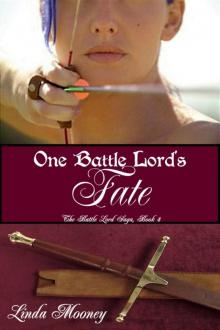 One Battle Lord’s Fate
One Battle Lord’s Fate Neverwylde
Neverwylde Neverwylde (The Rim of the World Book 6)
Neverwylde (The Rim of the World Book 6) Your Heart, My Home
Your Heart, My Home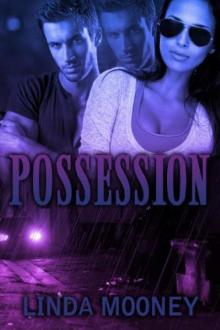 Possession
Possession